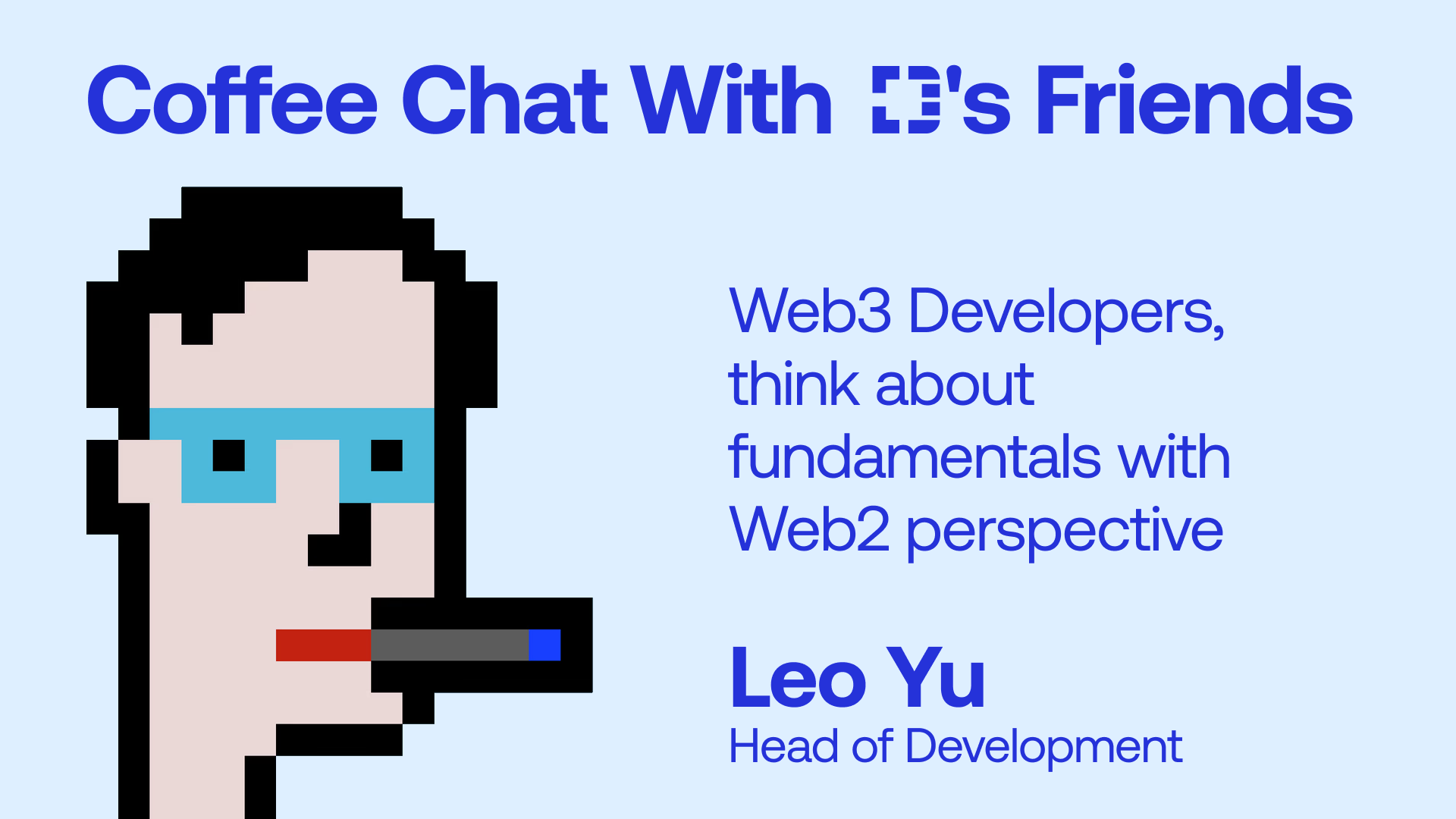
A Coffee Chat With D's Friends I Leo Yu / Head of Development
This time, coming up is Hyung Jun(Leo) Yu, Head of Development and asked about the reason why he moved from Web2 to Web3.

"Web3 Developers, think about fundamentals with Web2 perspective"
**Disclaimer) The opinions expressed in this interview are those of the interviewer and do not represent the official statement of DeSpread.
Hi, I’m ZZoha, PR Lead in DeSpread.
DeSpread is a company of “Degens” who are immersed in the Web3 industry. Each of our coworkers has a unique personality, but we share the same DNA: a genuine love of Web3. We work in a free-spirited atmosphere, but we’re all professionals in our respective fields
Last time, we interviewed Seung-hwa Lee(Do Dive), Head of Research for our third Coffee Chat with D’s Friends, and this time, coming up is Hyung Jun(Leo) Yu, Head of Development and asked about the reason why he moved from Web2 to Web3. He is leading “DeSpread Labs”, another pillar of DeSpread. Aren’t you curious about what he is working on there?
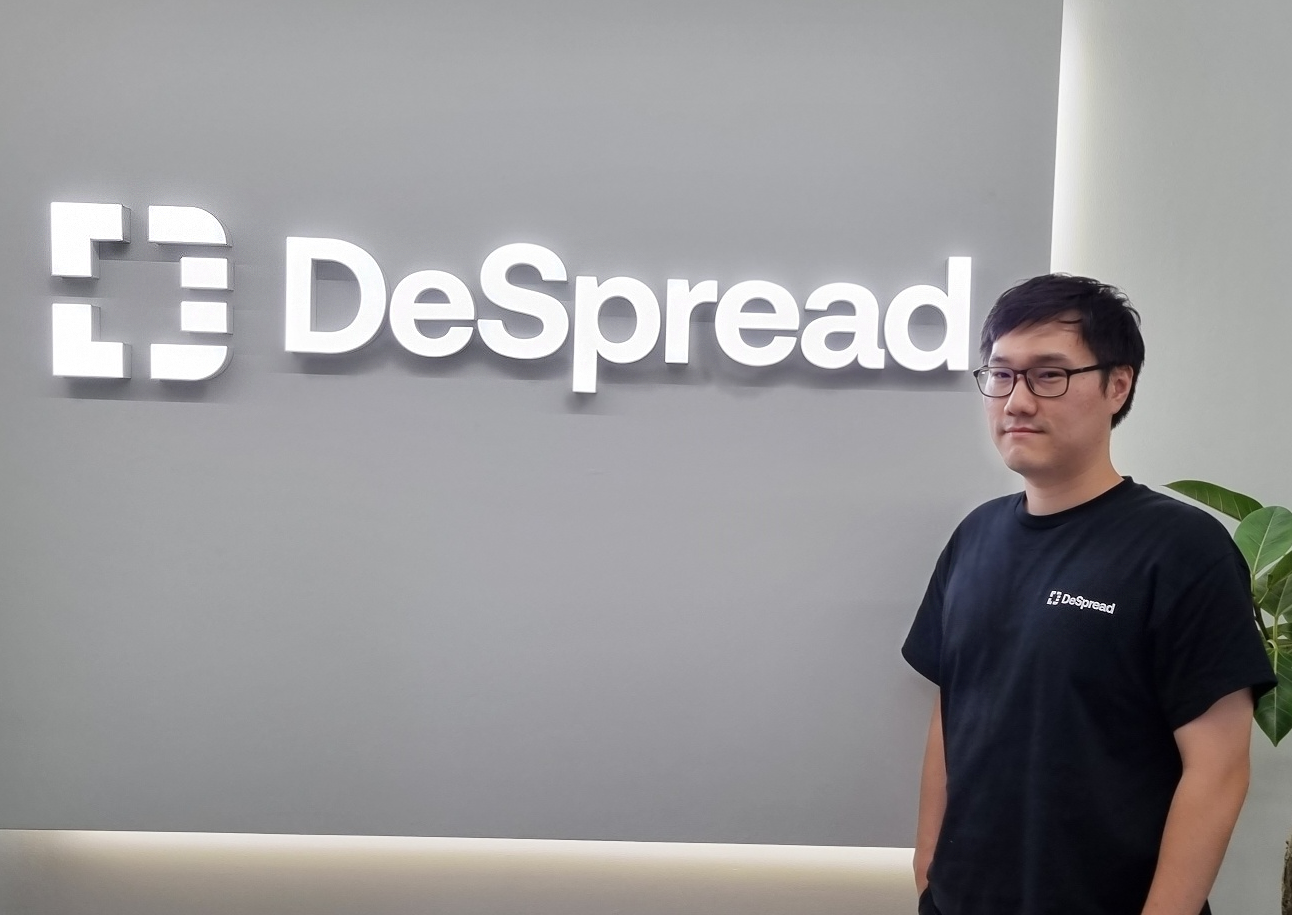
ZZo: Can you tell us a little bit about yourself?
"I'm Hyung Jun Yu and the Head of Development and CTO at DeSpread. Prior to joining here, I spent 6 years at LINE, a Korean IT conglomerate, developing the core backend of the media platform and running large-scale traffic services.
I entered DeSpread in March last year and I've been working as one of the first developers at DeSpread, and now I'm growing the development-specialized team.
I like to design systems that are lightweight but powerful, distributed but synchronized, and beautiful but effective. I’m familiar with posting on social media about my experiences as I work through the challenges of development. Besides that, I like to discuss technology with my fellow developers and improve the system together."
➤ Medium articles written by Hyung Jun Yu
ZZo: I understand that you previously worked at a Web2 company (LINE), but was there a particular reason for your move to Web3?
"Since I was at LINE, I had a desire to challenge the Web3 space. I had been studying Web3 development for two years before joining DeSpread, so I applied for a blockchain-related patent at LINE and held in-house seminars, but there were limitations. I made suggestions such as 'let's do a blockchain PoC service' and 'let's apply blockchain to storage', but it was difficult to realize them. At the time, it was hard to find people in the company who were friendly to blockchain because there was a predominantly skeptical atmosphere.
Nevertheless, I thought I could create more value by contributing to Web3 based on my skills and experience in Web2. Initially, I was only aware of blockchain and crypto as a means of investment. I bought EOS in 2018 and couldn't do anything as an investor because of potential damage.
Instead, I wondered what I could do as a developer, so I started reading technical books and learning. I studied Ethereum and developed several products in Solidity (an Ethereum programming language, which is a Turing-complete language and enables smart contract implementation). Then, in 2020, I started developing Web3 in earnest. I've been working on NFTs based on Stacks network as a toy project.”
ZZo: Despite the atmosphere in Web2, you moved on to Web3, didn't you?
"When I was at LINE, I was developing Web3 through a personal project, and I thought, 'If I contribute my energy and time (at LINE) to the Web3 ecosystem, the ecosystem will grow tremendously.' I did that, and it actually paid off. I think (working at DeSpread) shows how I can apply my experience in Web2 to Web3, and I think that's our unique competitive advantage."
ZZo: Why did you choose DeSpread out of all the Web3 companies?
"I met GM Chung, co-founder and CEO at DeSpread at the end of 2021 while working on Stacks-related development, and I had a lot of sympathy with his views on the Web3 market. I also trusted DeSpread’s ability to challenge new things in the Web3 space and do things honestly.
At the same time, I was feeling stuck at LINE and wanted to take on a new challenge.
I was the first developer who joined here, so I focused on finding out what I could do (as a developer) and laying the foundation for the development team. It's not easy to create a BM and it doesn't pay off in the short term, which means it's not easy to start in development at a company that isn't development-based. But my company understood that and gave me plenty of time, and I tried to bridge that gap."
ZZo: What is your current role at DeSpread?
"I'm the CTO at DeSpread, and I'm taking my technical design and development experience from Web 2 and bringing it to Web 3.
When I joined, my goal was to build a brand that could showcase our technical capabilities and create synergies with the existing business areas, so I created a development organization called 'DeSpread Labs', which leverages our deep understanding of Web3 to provide platforms and tooling for the ecosystem, as well as infrastructure support."
ZZo: What direction are you taking the organization?
"We aim to develop platforms and tooling that serve as bridges between existing Web2 and Web3, instead of relying on specific chains or projects, and to participate in governance to make sure the right decisions are made for the project."
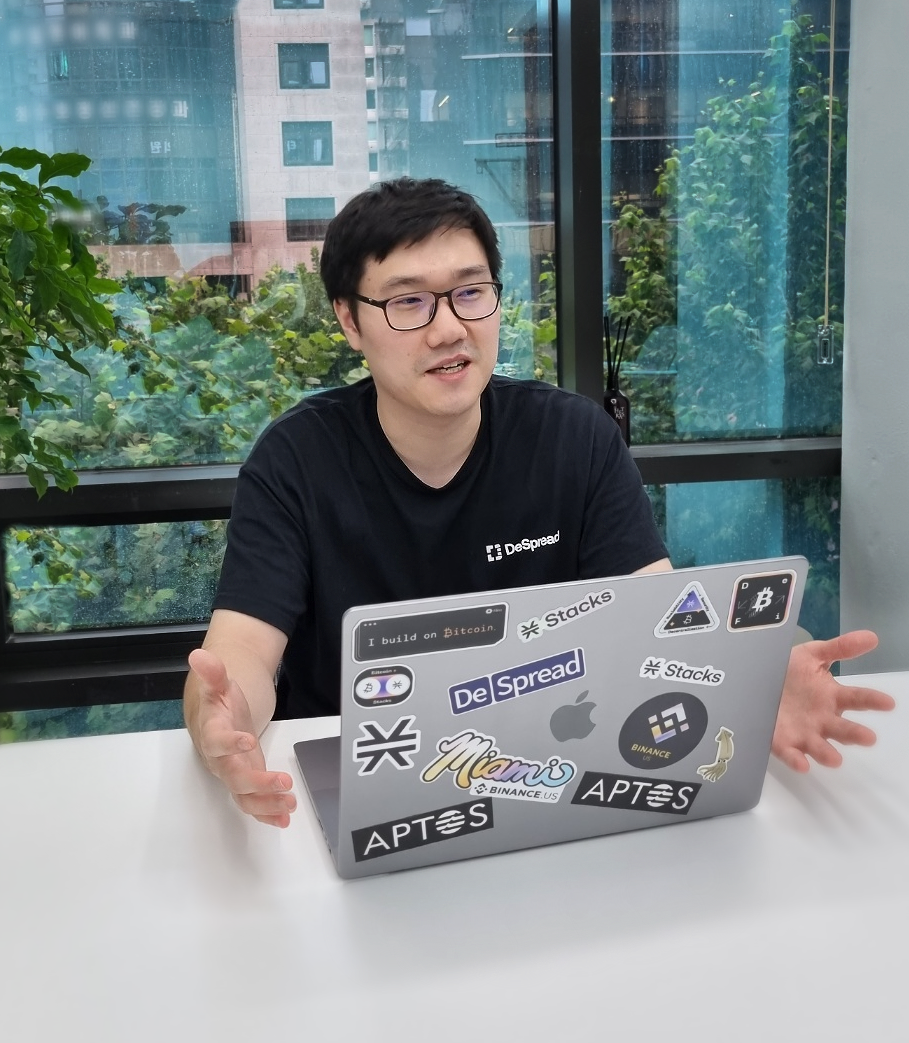
ZZo: I'm curious about the status of participating as a validator and criteria for choosing a validator of DeSpread.
"We are participating as a validator on 4 mainnets, including Aptos. We're looking to expand further in the second half of this year. We look at the project team and chain to see if they can grow well in the long term. Whether we need to invest too much human cost or time to set up a validator early on is another key point."
ZZo: I understand that your involvement as an Aptos Validator was an opportunity to raise the reputation of DeSpread Labs.
"I think my participation as an Aptos Validator helped create the BM of the DeSpread’s development organization. When the Aptos Incentive Testnet(AIT) was going on in 2022, there was a lot of excitement around Aptos, and we were thinking, ‘In the absence of technical capabilities and metrics for us, we need to have one thing that we can show externally to create a brand.’
That was the turning point. Building on our experience in the second incentivised testnet, we scored highly in the third (ranking third out of 288 node participants). As a result, we were first approached by the Aptos team to join the Aptos ecosystem as a Validator node operator. In the fourth incentivised testnet, our mainnet Validator is validated every three months, and we've had no issues so far."
➤ An article of joining Aptos Validator written by Hyung Jun Yu
ZZo: What is the competitive advantage of DeSpread Labs in the validator business?
"It's the deep understanding of Web3 and profound experience that DeSpread has accumulated. A company that only deals with technology can make technical judgments about each project or blockchain, but it is difficult to have other experiences or insights.
In contrast, DeSpread Labs has great potential for growth because of its synergy with DeSpread. For example, DeSpread research team let us know about the opportunity of joining AIT, and we actually participated in it and had good results.
We can take what we learn in the business or research area and apply it to the technical side. That's what makes us unique."
ZZo: I know that DeSpread Labs is developing an on-chain data-driven marketing tool. Can you tell us more about the platform?
"Currently, we have launched 3ridge in beta, and we receive feedback from users every week to improve and update the platform. 3ridge is an onboarding platform that makes it easier for domestic users to access Web3 projects that have barriers to entry. There are similar services overseas, but many of them do not match the sentiment of domestic users.
Reflecting this market demand, we developed 3ridge as a platform that can contribute to the domestic Web3 ecosystem. It is differentiated as an onboarding platform because DeSpread has been communicating with users and building trust."
ZZo: It seems to be a feature of 3ridge to categorize users by 'region', but since it's an on-chain wallet and the owner is not specified, how can you tell if it belongs to a Korean user?
"Firstly, we are filtering through meta information such as IP and User Agent when requesting applications, and secondly, we are distinguishing through SNS accounts connected to the on-chain wallet. Some messengers, such as KakaoTalk, are mainly used by Korean users, and we use events linked to SNS accounts to attract users for this filtering process.
In the future, we aim to identify the user's region as much as possible based on transaction patterns in the wallet. It won't be perfect because it's on-chain, but we expect to be able to filter most of the users through multiple devices."
ZZo: When do you expect to launch the full version of 3ridge?
"We are aiming for the second half of this year. Even after we launch, we'll continue to listen to user feedback and stay in close contact with our customers and users."
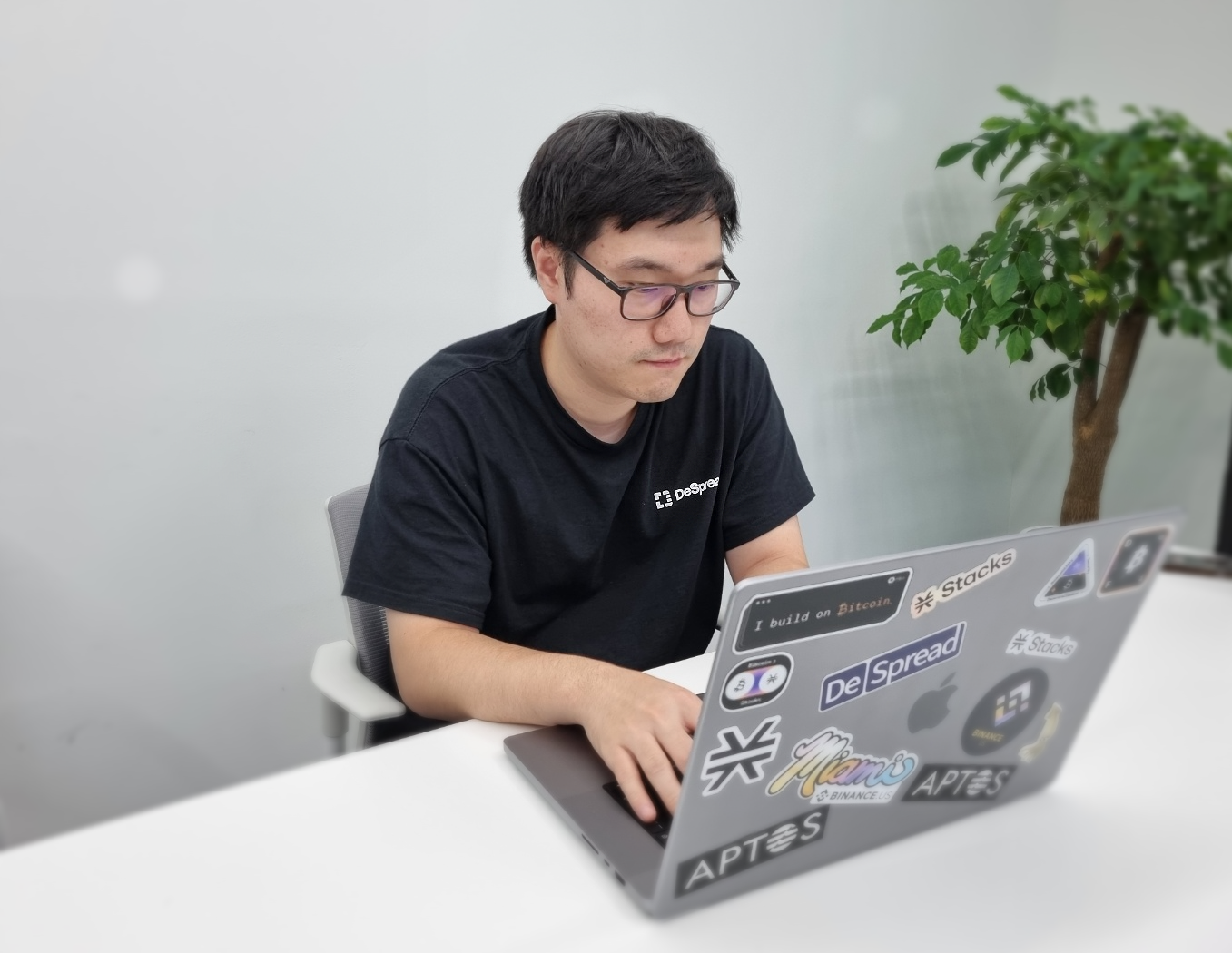
ZZo: Finally, do you have any goals you'd like to accomplish at DeSpread or as a Web3 developer?
"My goal is to develop user-centered services so that the Web3 market can develop more healthily in the future. I hope that 3ridge can serve as a bridge for Web2 and Web3 to cooperate with each other."
ZZo: Do you have any advice for junior Web3 developers?
"I think the catchphrase for Web3 developers is ‘Back to the Web2’ - don't get caught up in Web3, but look at the fundamentals of development from a Web2 perspective. A 'node' is still a server, and Web3 is just Web2 with a 'decentralization' paradigm. Web3 developers have been focused on Web3 since the last bull market, but they need to have a metacognition of Web2 and Web3, so they can build the right services."
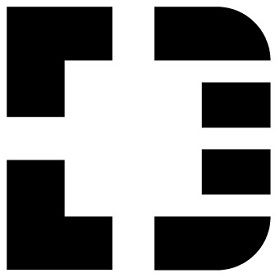
DeSpread’s Mission
DeSpread provides refined perspective for web 3 pioneers.